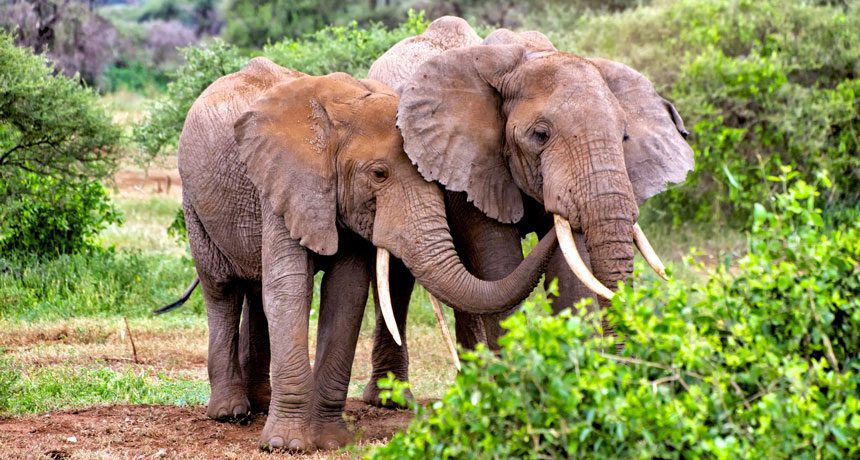Elephants Are More Resistant To Cancer Than People

A study[1] published in JAMA on October 8, 2015 uncovered why elephants are very resistant to cancer, which may help in the fight against cancer in humans.
Cancer develops from mutated and damaged cells dividing into new cells with the same damaged DNA. The difference between cancer cells and normal cells is cancer cells keep dividing without naturally dying off. These cells continue to divide and eventually form clusters of cells which are called cancer.
It would seem that animals that had more cells and that lived longer would be more susceptible to cancer, but in the case of elephants this was not the true.
Normal cells have a trigger that kills the cells after they have reached a certain age or if they become damaged beyond repair. This trigger is made up of TP53 genes that in response to cell DNA damage will trigger P53 proteins to repair the cell damage or they will trigger the cell’s death in a process called apoptosis.
Humans have 1 copy of TP53, consisting of 2 alleles, while elephants have 20 copies of the TP53 gene. Researchers discovered that Elephant’s cells are more likely to destroy themselves than to try to repair extensive damage done to cells.
Researchers exposed peripheral blood lymphocytes from elephants in vitro in the laboratory for DNA damage response, and the cells response was to commit cell death rather than trying to repair the cells and chancing replicating cells with damaged DNA.
Dr. Joshua Schiffman, co-senior author of the study said:
“It’s as if the elephants said, ‘It’s so important that we don’t get cancer; we’re going to kill this cell and start over fresh.'”
Elephants are highly cancer resistant and despite their size longevity of life have a cancer death rate of only 5%, compared with humans who have 11% to 25% cancer mortality. This data the study revealed may prove promising in treating cancer in humans.
Other animals studied for their cancer resistance were the rock hyrax that had a 1% cancer mortality rate, African wild dog, 8%, and the lion, withe 2% cancer mortality rate.
Tags: cancer awareness






